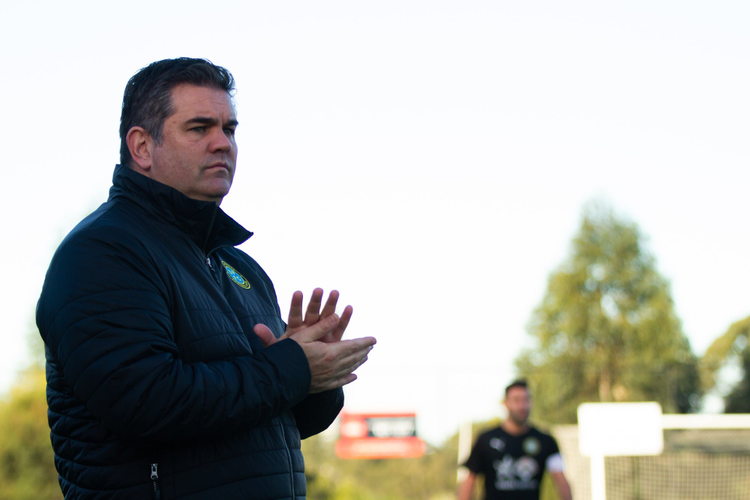You’ll never walk alone

In recognition of Hispanic Heritage Month, Adobe employee Nass Martino shares the story of how he found where he belongs and helps others do the same.
Growing up in Maroubra, a beachside suburb of Sydney, Australia, Nass Martino’s happy place was at home. He fondly remembers curling up on the couch and watching football (or, as some call it, soccer) with his dad. This is where his affection first grew for Liverpool FC, whose motto is, “You’ll Never Walk Alone.”
His experiences outside his home were entirely different, however. As the son of Uruguayan immigrants, Nass looked different from the other Aussie kids, and they constantly made him feel like an outsider — often through the use of demeaning slurs.
In the story he shared during Adobe For All Week, Adobe’s annual internal D&I event, Nass described how football helped him become who he is today, and how his experiences have inspired him, both on and off the pitch, to become a coach and create a place where no one has to walk alone.
We talked with Nass about what it was like to share his story and the transformative power of belonging.
What was it like to share your experiences with such a large audience?
It was such a moment for me. I’ve been keeping stuff in for so long, and I was able to show everyone part of what made me the person I am today. People see me being the jokester in meetings, always trying to get people laughing, but I just want to bring people together.
It was also very emotional. It was only two days after our former executive vice president of Worldwide Field Operations had passed away. Seeing our CEO, Shantanu Narayen, open up and be vulnerable was very inspiring. That’s what I call leadership. That he could be himself in front of all of us, that empowered me even more to tell my story.
What kind of response did you receive from people who listened to your story?
The love and affection you get at Adobe is incredible. I’ve heard from so many people who told me about their own experiences and how my story resonates with them. It’s opened a dialogue with people I probably wouldn’t have had a chance to connect with otherwise. Participating in Adobe For All Week and getting this response has made me reflect in a whole new way and feel even more at home at Adobe.
You only had a few minutes to share your story during Adobe For All Week. Are there parts you weren’t able to include?
When I was 17, my mum and dad gifted me a ticket to Uruguay to meet my extended family for the first time. I spent three months there and learnt about my background and what it meant. I experienced my parents’ culture, honoured it and began to embrace it.
It was amazing but also strange because, in Uruguay, everyone welcomed me. I was celebrated for being Australian. People stopped me in the street to say hello or ask if I was enjoying Uruguay or what Australia is like. It was so different from what I experienced in my home country.
I remember when my dad picked me up at the airport after I returned; he asked me, “Who are you? You’re a different person.” And I was a different person.
How did that trip change you?
I grew up. I opened up. The support and love I received was just what I needed. I learnt to lead and what it meant to belong, but more importantly, how to create a place where others can belong. I went from being shy and timid to someone able to lead and motivate football teams, who’s now presenting his life journey to the world.
This year, Adobe’s Hispanic Heritage Month theme is “Esperanza: A Celebration of Hispanic Heritage & Hope.” What does that mean to you?
My Uruguayan culture celebrates family and coming together, and I love bringing people together. We haven’t gathered for a while because of the pandemic, but one thing I adopted from Uruguay is their barbecue, “El Asado.” They don’t just put a steak on the grill. They barbeque the whole cow! We love having the family over — and family is not just blood relatives; it’s people who love and support you through good and bad times — to share good food and wine, and celebrate coming together.
What is your hope for the future for the Hispanic/Latinx community?
I know my experience is somewhat different from what a lot of Latinx people have experienced, but we all want to belong. The Hispanic community is no different. I believe that if everybody does one thing to make a difference to someone else’s life, that can change the world. If a million people each help just one person, that’s a million people feeling like they belong. So I’m not asking anyone to do a million things, just one.